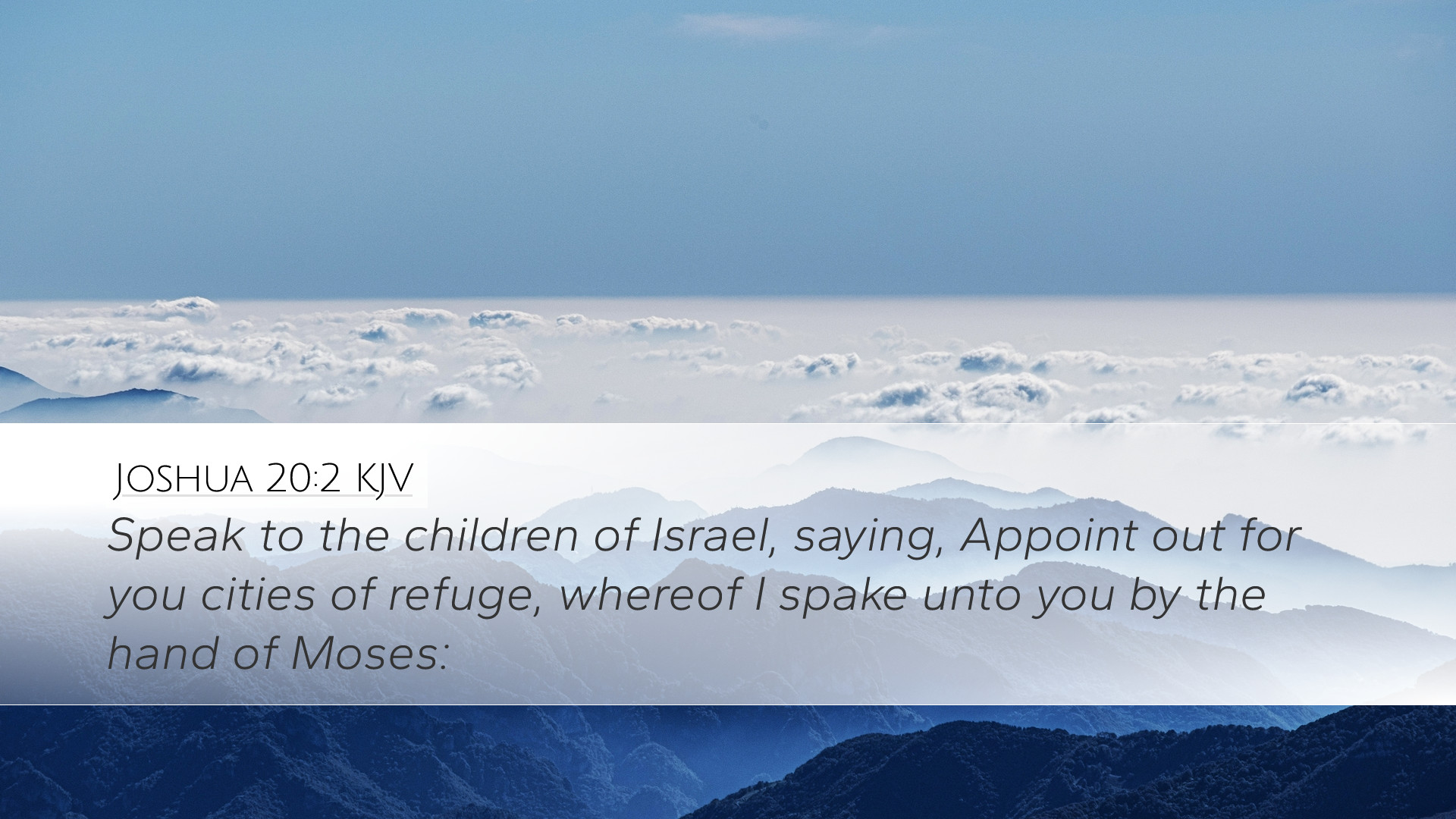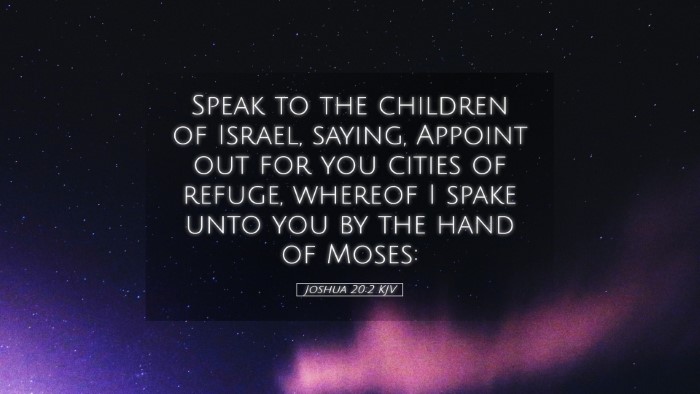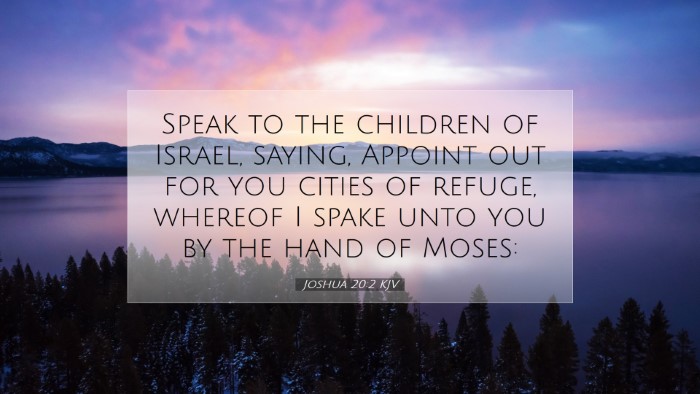Old Testament
Genesis Exodus Leviticus Numbers Deuteronomy Joshua Judges Ruth 1 Samuel 2 Samuel 1 Kings 2 Kings 1 Chronicles 2 Chronicles Ezra Nehemiah Esther Job Psalms Proverbs Ecclesiastes Song of Solomon Isaiah Jeremiah Lamentations Ezekiel Daniel Hosea Joel Amos Obadiah Jonah Micah Nahum Habakkuk Zephaniah Haggai Zechariah MalachiJoshua 20:2
Joshua 20:2 KJV
Speak to the children of Israel, saying, Appoint out for you cities of refuge, whereof I spake unto you by the hand of Moses:
Joshua 20:2 Bible Commentary
Commentary on Joshua 20:2
In Joshua 20:2, we encounter a significant directive from the Lord regarding the establishment of cities of refuge. This directive serves a multifaceted purpose within the broader narrative of Israel's history and legal structure. Understanding its implications requires a careful exploration of its theological, historical, and practical dimensions.
Textual Analysis
Joshua 20:2 states: "Declare the cities of refuge, of which I spake unto you by the hand of Moses." This verse commands the selection of specific cities where individuals who unintentionally commit manslaughter can seek asylum and receive protection. The significance of this command lies not only in its immediate application but also in its lasting theological implications.
Theological Significance
- Divine Mercy and Justice: The cities of refuge exemplify God's mercy intermixed with His justice. Matthew Henry remarks that while God is just, He also provides a means of refuge for those in need. This duality is foundational in understanding God's character as one who desires not the death of a sinner, but their repentance and protection.
- Christ as the Ultimate Refuge: Albert Barnes draws parallels between these cities and the refuge found in Christ. Just as an accidental killer could flee to a city of refuge, believers today can find safety in Jesus, who serves as our ultimate sanctuary from sin and judgment.
Historical Context
This instruction is rooted in the Mosaic law, which laid down the foundational principles for the nation of Israel. Adam Clarke notes that the context includes previous scriptures found in Exodus 21:13-14 and Numbers 35:11-15, emphasizing that cities of refuge were strategically located within the boundaries of the promised land to ensure accessibility for all.
Practical Implications
From a pastoral perspective, the cities of refuge illustrate the importance of community and accountability. The establishment of such cities required a societal consciousness that valued justice tempered with compassion. This is a call for modern-day believers to create environments where grace and truth coexist.
- Church as a Refuge: The church should embody characteristics of the cities of refuge, offering grace and support for those seeking restoration. It must also balance the need for holiness and accountability, fostering an atmosphere where individuals can seek help without fear of judgment.
- Awareness of Unintentional Sin: The verse serves as a reminder of the reality of unintentional sin in our lives. It speaks to the need for grace in our interactions, recognizing that we often hurt others without malice.
Conclusion
Joshua 20:2 invokes critical reflections on God’s character, the nature of sin, and the role of community in addressing both justice and mercy. The cities of refuge remind us of our need for grace, both in how we relate to God and how we support one another within the Body of Christ. As we consider this verse, let it challenge us to manifest God's mercy and create spaces where individuals can find true refuge as they navigate the complexities of life.


